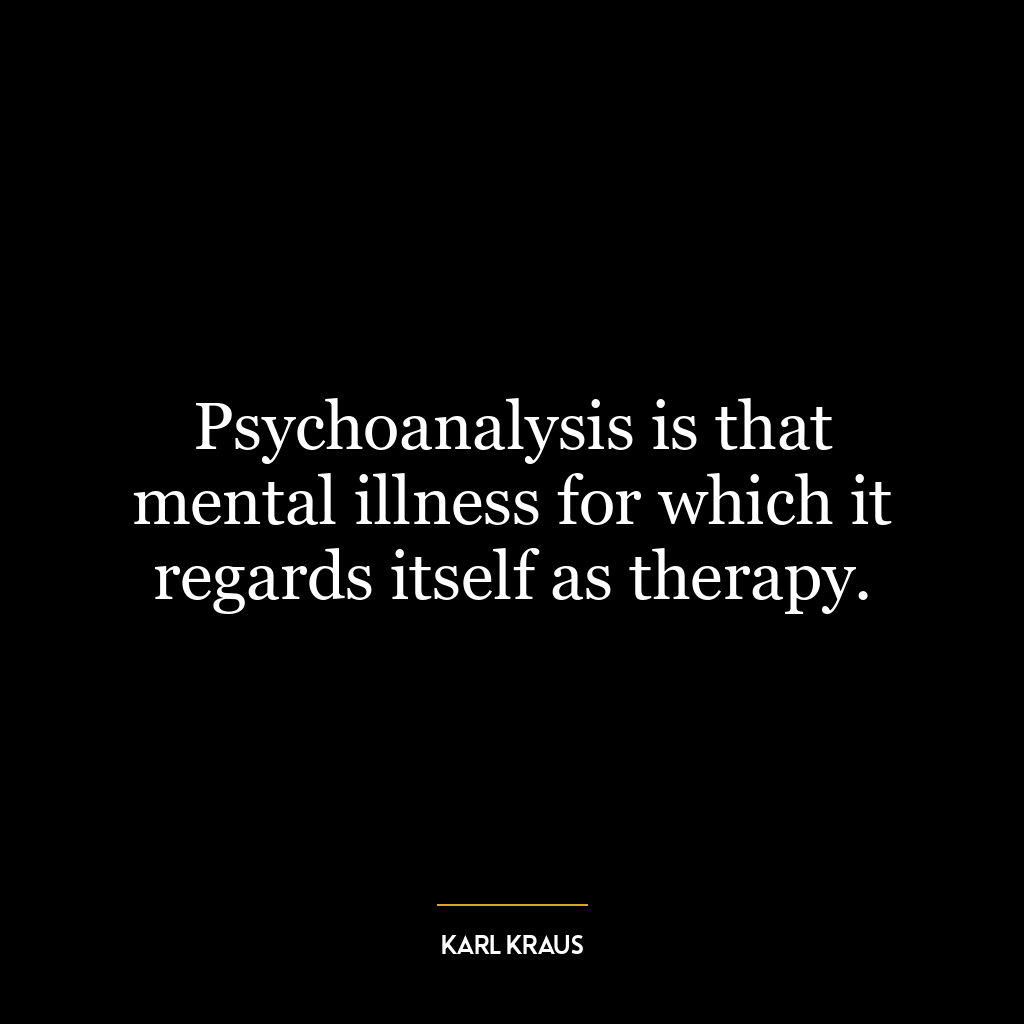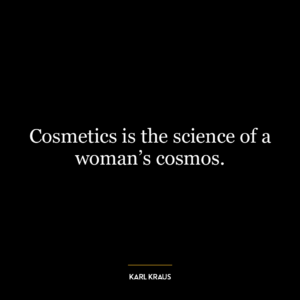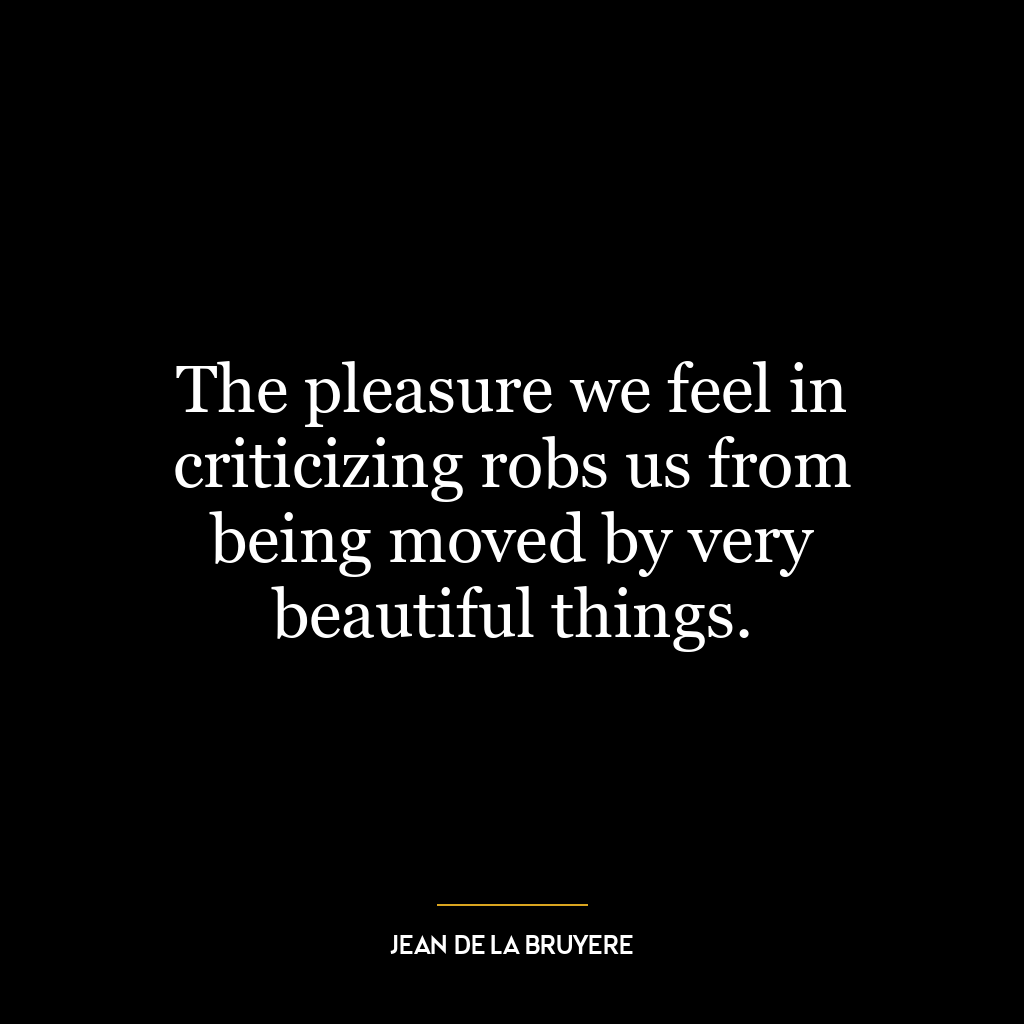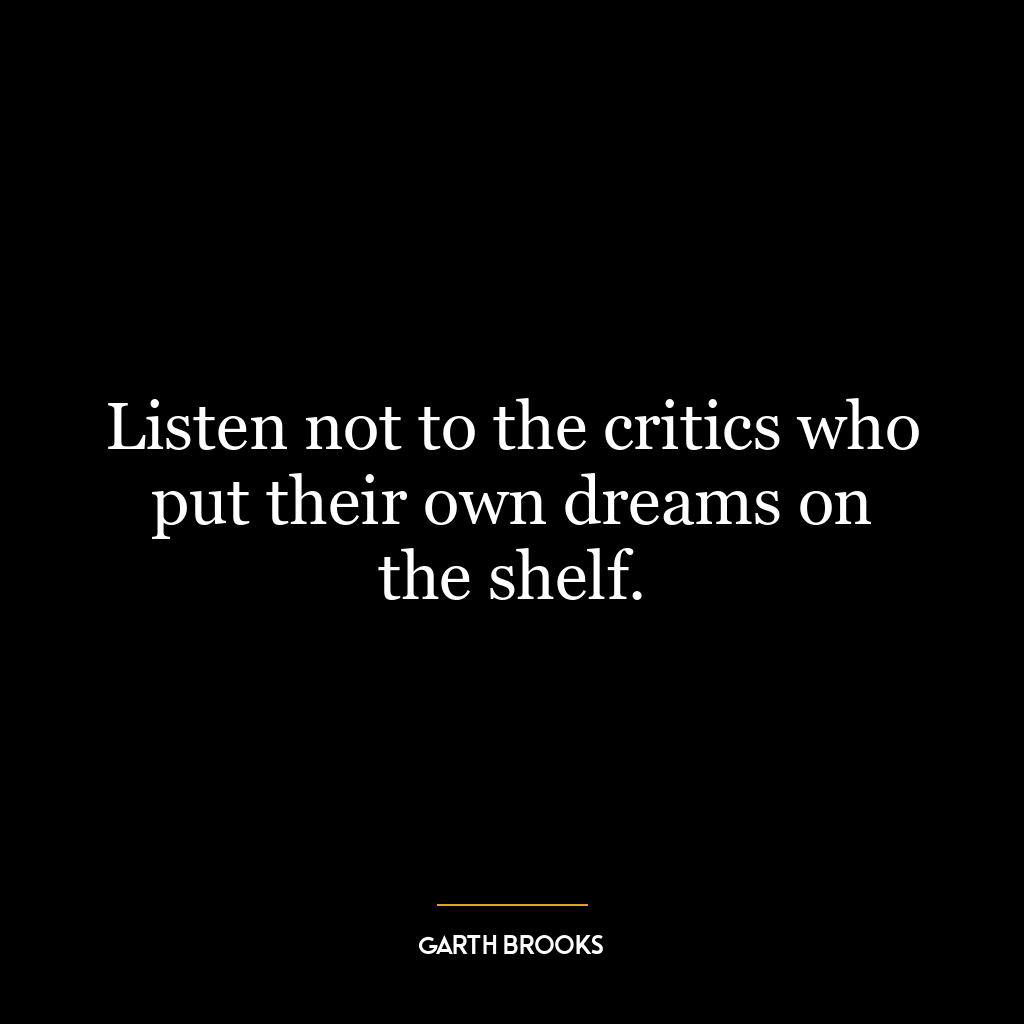Psychoanalysis is that mental illness for which it regards itself as therapy.
This quote suggests that psychoanalysis, a therapeutic approach that involves exploring unconscious thoughts and childhood experiences, can itself be seen as a form of mental illness. The idea here is that psychoanalysis is not just a cure, but also a cause, as it can lead to over-analysis, self-absorption, and an obsession with one’s own past and unconscious mind, which can be unhealthy and unproductive.
Kraus is implying that the very act of psychoanalysis can become an illness in itself, as it encourages individuals to constantly delve into their own psyche, potentially leading to an unhealthy obsession with self-analysis. It suggests that the line between therapy and illness can become blurred, as the cure can potentially become the cause.
This statement can be applied to today’s world where there is an increasing focus on mental health. While it is important to understand and address our mental health issues, there is also a risk of becoming overly self-focused and constantly analyzing our thoughts and actions. This can lead to a form of paralysis by analysis, where we become so caught up in understanding our feelings and behaviors that we fail to actually live our lives.
In terms of personal development, this quote can serve as a reminder to maintain a balance in our introspection. Self-awareness and understanding our past experiences are crucial for personal growth, but it is equally important to not become overly self-absorbed or obsessed with our own psyche. We should use insights gained from introspection to make positive changes and move forward, rather than getting stuck in constant self-analysis.
In a nutshell, Kraus’ quote is a call for balance. While psychoanalysis can be a powerful tool for understanding ourselves and addressing mental health issues, it should not become an all-consuming obsession that prevents us from living our lives to the fullest.















